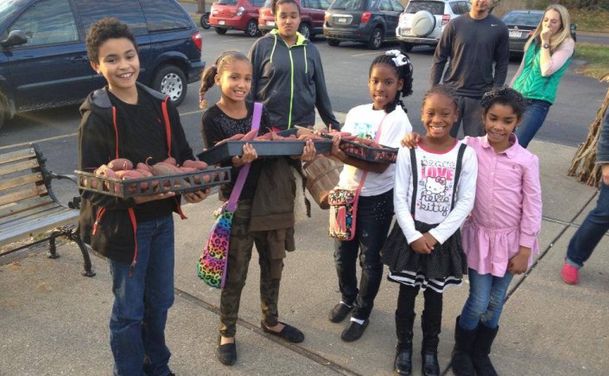
"It's a full circle story. We want to be plugged into all aspects of the city."
One of the major contributors to the spread of blighted properties in Huntington is the unwelcome purchase of properties at county and state tax sales by land speculators who buy them up just to earn money on the interest, abandoning the properties to become havens for drugs or prostitution. The City recognized this problem and sought the development of a land bank to help address these issues, which is just one solution to problems of vacancy and abandonment.
The City of Huntington is part of the West Virginia Home Rule Pilot Program, and they initially planned to set up a land bank through the City, which would include the ability to have the first right of refusal to purchase the properties before the public at tax sales. However, a group of local attorneys and land speculators filed suit, so City officials resolved in 2009 to instead set up the land bank through Huntington’s Urban Renewal Authority (URA) who would run and manage it, without the powers granted through Home Rule.
This means that for the URA to acquire properties for the land bank, they need to bid alongside the public at tax sales, which is a challenge because other agencies or out of state land trusts are able to bit 10% or 20% over what the URA can offer. The URA receives no funding except through a Community Development Block Grant which cover half of two full time salaries, so they function precariously through a line of credit. The URA spends a lot of time researching and mapping out properties, so when they show up at a tax sale and are out bid by speculators who will leave the community in worse shape, it is frustrating.
Huntington’s Land Bank currently has around 120 properties in its inventory, and has sold an estimated 125 properties since 2011. Some are structures which private developers have rehabilitated and turned into rentals, and some have become single family homes. They vote together as a board, both to acquire properties and to approve prospective buyers. They have an application process in place which requires an interested buyer to show where their funds are coming from and what they intend to do with the property, and they verify with the City to see whether the buyer has a history of code violations.
Part of the Huntington URA’s success is due to fruitful partnerships such as with Habitat for Humanity. For instance, they were able to secure and transfer five properties for the development of Habitat for Humanity’s Veterans Housing Initiative, thereby improving one contiguous block of the city. Through a partnership with the local housing authority, the URA was able to secure and transfer property for the development of the first senior high rise that will house 40 displaced seniors from the demolition of North Cot Court, an old and dilapidated low income housing development.
One particularly rewarding partnership was with the WVSU Extension’s SCRATCH project, which involved local children in planting community gardens on vacant properties acquired by the URA. Last year, they planted sweet potatoes which were sold to local stores around the city, and local restaurant Black Sheep Burrito and Brews collaborated with the Charleston Brewing Company to convert them into a special “Sweet Pot” brew. “It’s a full circle story,” according to Huntington URA’s Christal Perry. “We want to be plugged into all aspects of the city.” The URA is also received property, through donation, that will become the site for Huntington’s first Community Urban Orchard. The lot will be maintained by WVSU Extension and will be used for educational workshops and community events.
The URA’s property manager works with men enrolled in the Fatherhood program, which is sponsored by KISRA (the Kanawha Institute for Social Research and Action), an organization based in Charleston. Men in the program have prior minor records and work with the Land Bank as a way to reenter the workforce with job experience and reliable references. They are paid by KISRA through a grant program to assist in lawn maintenance and property board-ups, among other activities.
Through the land bank, Huntington’s URA has created a “Life on Lots” program that allows individuals, community groups, churches, nonprofits and businesses to adopt a vacant lot, putting it back into productive use to the benefit of the community. Other vacant lots are available for purchase by adjacent property owners at a reduced cost to be utilized for side yard expansion.
Christal recommends that if a municipality or local group wants to start a land bank, they should secure a source of funding. She stresses that it is very expensive to maintain a land bank and it has been difficult for them to operate primarily through credit. She also suggests that it is not for every town, as Huntington is large and has many vacant properties. Starting small, such as addressing five abandoned properties, should be considered a success. Christal advises that anyone dealing with abandoned and dilapidated buildings should “check what’s in their toolbox” such as having an Unsafe Building Commission or operational procedures in place.
In order to strengthen their land bank, the URA is currently working to seek additional funding resources. They have set up a subcommittee to develop a five-year plan that will hopefully sustain the land bank in the future. Sustaining the land bank means securing the health, safety, and quality of life for the City, and Huntington’s URA has made excellent progress since their start six years ago.
To learn more about the Huntington Urban Renewal Authority’s Land Bank, contact Christal Perry or visit their website.